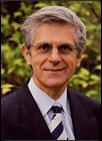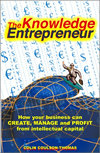 |
 |
|
 |
Have you gone global?
By Professor Colin Coulson-Thomas
Colin Coulson-Thomas explains how to operate effectively
in the international marketplace.
The horizons of ambitious managers today embrace the globe. Deregulation,
privatization and market forces have eroded trade barriers. Budget airlines
have reduced travel costs. The end of the cold war has created new opportunities.
Work can follow daylight around the globe allowing 24 hour a day operation.
Resources can be accessed and activity undertaken locally, regionally
or at global level depending upon requirements and comparative costs.
Even sole traders use websites and email to make direct contact with customers
all over the world.
However, operating in the international business environment also presents
new challenges. There are commercial, legal and financial risks to consider.
There are obstacles of distance, culture and time to overcome.
The Centre for Competitiveness at the University of Luton examines the
differing approaches of successful international operators and businesses
that find it hard going. Comparing them reveals some ‘dos’
and ‘don’ts’ for those with aspirations to go global.
Thinking global is the first step towards acting global. To take it you
need to be aware of what is happening abroad. When you touch down be open
to new influences and receptive to alternative ideas.
Retain a sense of perspective. Business people around the world watch
the news on CNN. Global media shape their attitudes and perceptions. But
even MTV has its regional offerings, and requirements for products can
vary greatly between national markets. The significance of borders will
depend upon the business you are in,
Don’t be overawed by the claims of others. Many so-called international
companies are national enterprises that trade internationally. People
who travel a lot sometimes hold onto stereotyped views or exaggerate national
characteristics. Living and working abroad can reinforce existing prejudices.
Some make an effort to adjust and adapt. Others don’t.
Appearances can be deceptive. A German manager who might seem formal and
detached may contribute as much as a more voluble American. Reluctant
Britons might observe a consensus outcome while delightful French colleagues
may refuse to implement decisions they disagree with.
Knowledge of the best bars in Amsterdam, Barcelona or Venice does not
distinguish an ‘international manager’. Attitudes, approaches
and perspectives do. Internationally aware mangers are alert to developments
in the global business environment.
True internationalization requires more than an ability to speak foreign
languages. Respect other viewpoints. Be tolerant of national differences.
Actively support cultural diversity. Seek opportunities for foreign travel.
Participate in overseas exchanges and job swaps. Join international project
groups, task forces and teams.
Companies like countries can have distinct cultures. Be sensitive to differences
and similarities in national assumptions, attitudes, and motivations.
Try to reconcile conflicting interests, while recognizing that particular
local requirements create opportunities for bespoke offerings.
Customer segments may or may not coincide with national borders. Experienced
international operators are intuitive and cross-culturally aware. Learn
to handle diversity and relationships with overseas colleagues. Mutual
expectations need to be realistic and compatible. Address practicalities
such as whether the technologies of the various parties will connect.
People likely to be interested in what you have to offer may be widely
scattered. Keeping opportunities to yourself, trusting no one and operating
alone will stunt your growth. Form relationships with complementary collaborators
in other countries.
Some managers have a distorted understanding of overseas situations and
harbour naïve expectations of international initiatives. Be realistic.
Think through the implications of what you are setting out to do. Anticipate
likely consequences, consider probable outcomes and assess possible reactions.
Be prepared to address potential problem areas.
Recognize fundamental national differences and match words and deeds.
Don’t advocate diversity and variety, and then insist upon common
approaches. Don’t impose standard solutions that are inappropriate
in particular locations. Wherever possible, tailor your approach to local
circumstances and individual requirements.
Aim to communicate with customers and prospects in ways that are acceptable
to them. Use languages they understand. If your intention is to become
an international rather than a European player, you may need to give greater
priority to Spanish and Portuguese.
Some executives talk about internationalization but then make sure that
all key positions are in the hands of ‘home country’ nationals.
Diversity can be a spur to creativity. If you get the chance, recruit
and develop a multinational cadre of managers. Ensure opportunities go
to those who are best qualified for each role.
Try not to force internationalization down your colleagues’ throats.
Let it occur naturally and tackle problems as they arise. Don’t
sweep difficulties under the carpet or hope they will go away. Allow people
to network. Let them forge whatever cross-border relationships will best
enable them to achieve their objectives.
Do not foist a single corporate culture on employees, customers and suppliers
regardless of differing local conditions and unfavourable circumstances.
Match your management style to how people you wish to develop closer relationships
with operate.
Before you set up joint ventures with overseas businesses make sure you
and your colleagues are equipped to manage them. Be prepared to devote
time to making them work. Because of the effort involved select prospects
with care. Learn from your mistakes, and from your customers, suppliers
and business partners.
Don’t be pre-occupied with yourself. Focus on the people you would
like to establish, build and sustain relationships with. Understand them.
Empathize with them. Respond to their aspirations, hopes and fears.
Effective international relationships are based on trust and respect.
Lasting partnerships depend upon compatible interests. Establish a shared
vision, common values, joint goals and agreed objectives. Consciously
create mutually beneficial arrangements. Monitor reactions and be alert
to changing requirements. And finally, celebrate, enjoy and sustain success.

Professor Colin Coulson-Thomas |
About the Author:
Professor Colin Coulson-Thomas
is an experienced chairman of award winning companies and consultant.
He has advised over 80 boards on how to improve board and corporate
performance, leads the world's largest winning business research
and best practice programme, and has reviewed the processes and
practices for winning business of over 50 companies.
Following marketing and general management roles Colin became the
world's first Professor of Corporate Transformation and more recently
Process Vision Holder of major transformation projects. He is the
author of over 30 books and reports, including ‘Individuals
and Enterprise’ (Blackhall Publishing, 1999), 'Shaping Things
to Come' (Blackhall Publishing, 2001), 'Transforming the Company,
Manage Change, Compete and Win' (Kogan Page, 2002 and 2004)
and ‘The Knowledge Entrepreneur’(Kogan Page,
2003). Colin has spoken at over 200 national and international conferences
and corporate events in over 20 countries. He can be contacted:
Tel: 01733 361 149
Fax: 01733 361 459
Email: colinct@tiscali.co.uk
Web: www.ntwkfirm.com/colin.coulson-thomas
|
|
Transforming the Company: Manage Change, Compete & Win
Colin Coulson-Thomas shows that to bridge the gap between rhetoric
and reality, business people must make far-reaching decisions about
the value to them and their companies of particular theories, past
assumptions and traditional approaches. Based on original research,
the first edition of this was ahead of its time and predicted many
of the current management trends. The author now brings the text bang
up-to-date for the 21st century. This second edition of Transforming
The Company shows how to turn theory into practice by highlighting
the obstacles and barriers that confront companies when trying to
bring about change. For management at all levels faced with this task,
this thought-provoking book will inspire and enlighten. |
| 
Buy
UK Buy
US
|
The Knowledge Entrepreneur: How Your Business Can Create,
Manage and Profit from Intellectual Capital
In many companies knowledge management has focused almost exclusively
upon the packaging of existing knowledge. This book is designed
to help readers boost revenues and profit by significantly improving
the performance of existing activities and also creating new offerings
that generate additional income. It shows how practical knowledge-based
job-support tools can transform work group productivity, and reveals
the enormous scope for addressing contemporary problems such as
"information overload" with imaginative responses. Additional
information includes: a list of possible commercial ventures; detailed
checklists that can be used for identifying and analysing opportunities
for knowledge entrepreneurship; and exercises for assessing entrepreneurial
potential and "scoping" possible products and services.
The free CD-ROM packaged with the book gives examples of particular
knowledge-based job support tools that have dramatically improved
desired results in crucial areas such as winning more business.
|

top of page |
 |
